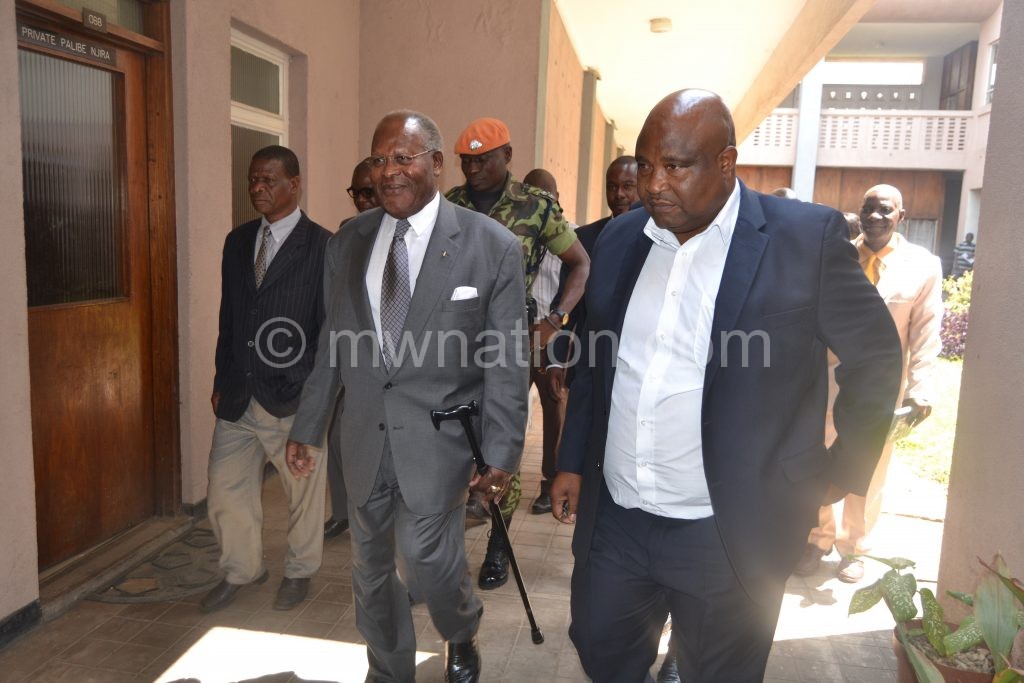State, defence agree in Muluzi graft case
The State has agreed with lawyers representing former president Bakili Muluzi in his corruption case to inspect original bank statements to be used in court as evidence.
The two sides disagreed on the veracity of evidence tendered in court by the State two weeks ago when the defence argued that the documents were not authenticated by a Commissioner of Oaths.

The defence further argued that the tendered documents could not be used in court as they did not comply with the Oaths and Authentication of Documents Act.
Judge Maclean Kamwambe directed the State to comply with the Banker’s Book of Evidence Act which provides for submission of original copies of bank statements when arguing a case.
And yesterday, the parties appeared before the Judge in his chambers where they agreed that the defence counsel should inspect the original documents at National Bank of Malawi before Friday this week.
Both State and defence lawyers Clement Mwala and Jai Banda, respectively, confirmed in an interview agreeing to inspect the bank documents this week.
“We have already served the defence with the required affidavit that was sworn by bank officials, so we will make arrangements with the bank this week for the defence to go and look at the documents,” said Mwala.
Banda also confirmed being served with the documents, saying all the required processes have to be done by Friday this week.
However, Banda also stated that the defence had filed an application on a constitutional matter challenging Section 32 of the Corrupt Practices Act.
“We feel this Act goes against the country’s Constitution, so we served prosecution with the documents, but they have indicated that they want to consult before proceeding,” said Banda.
Mwala said the State will respond to the application within the week.
“We have our own views. But it would not be proper to pre-empt our arguments, but we will respond accordingly. We have met such arguments before in respect of other provisions of the same Corrupt Practices Act,” explained Mwala.
The defence feels it is being made to argue their case in a manner that the accused is presumed guilty “yet the Constitution states any person is supposed to be presumed innocent until proven guilty”.
“In this case, the burden being put on the defence is as if they are already guilty. That is what we are challenging,” said Banda.
The contested section reads: “The director or any officer of the [Anti-Corruption] Bureau may investigate any public officer where there are reasonable grounds to believe that such public officer… Be in receipt directly or indirectly of the benefit of any services which he may reasonably be suspected of having received corruptly or in circumstances which are not an offence under this Act, shall, unless he gives a reasonable explanation, be charged with having or having had under his control or in his possession pecuniary resources or property reasonably suspected of having been corruptly acquired.
“Unless he gives a satisfactory explanation to the court as to how else he was able to maintain such a standard of living, or such pecuniary resources or property came under his control or his possession shall be guilty of an offence.”





